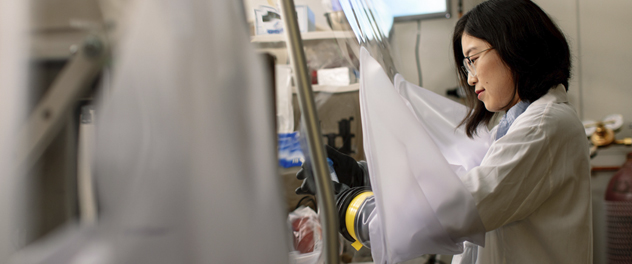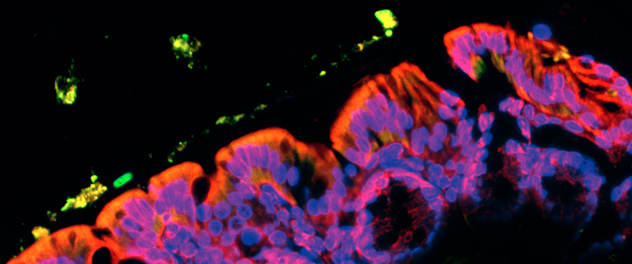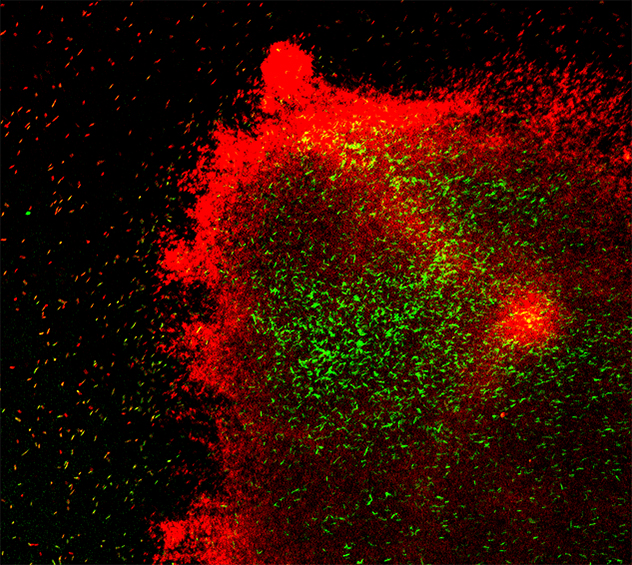-

Preventing dangerous gut infections
Dr. Kashyap's lab is studying host, microbiome and pathogen characteristics to develop individualized strategies for prevention and treatment of C. difficile infection.
-

Visualization of pathogens in the gut
Dr. Kashyap's lab utilizes high-resolution florescent microscopy combined with microfluidic platforms to study the formation of pathogenic C. difficile biofilm and interactions between C. difficile and gut microbiota and host cells. This research will build a bridge for understanding the crosstalk among C. difficile, gut microbes and host cells and will provide insight for development of targeted therapeutics for C. difficile infection.
Understanding the Role of Gut Microbiome in Pathogenesis of Clostridioides Difficile Infection
Ex vivo visualization of C. difficile biofilm formation

This image shows C. difficile (stained in red) overlaid with an image of the polysaccharide matrix (stained in green). The co-localization suggests the presence of a biofilm in this sample.
Clostridioides difficile is a leading cause of hospital-acquired infections. The incidence of C. difficile is steadily increasing and is associated with significant mortality.
The Gut Microbiome Lab at Mayo Clinic is studying how natural variation in individual gut microbiomes relates to clinical risk factors and susceptibility to C. difficile infection. The lab's research goal is to develop specific microbial and metabolic biomarkers that can identify people who are at increased risk of infection and who would benefit from prophylactic interventions directed toward the gut microbiome.
Previous work in Dr. Kashyap's lab has utilized clinical metadata and patient derived samples to identify factors associated with susceptibility to C. difficile infection. Now, the lab is leveraging these patient-derived samples to investigate microbial and host factors that promote an environment conducive for expansion of C. difficile, and to understand the effect of strain level differences in C. difficile on the infection's pathogenicity and response to treatment.
In particular, the lab is currently interested in the role of biofilm formation in the persistence and recurrence of C. difficile.
Dr. Kashyap's research team uses a wide range of techniques and approaches, including scanning-electron microscopy, live cell imaging and metabolomics in addition to novel in vitro and ex vivo assays, including microfluidic devices and organoids. Additionally, germ-free mice colonized with patient-derived microbiota continue to serve an essential role allowing for sensitive in vivo modeling.
The lab's diverse approaches in this project will aid in development of precision microbiota-based therapies as preventive strategies targeting people who are at risk of C. difficile infection.